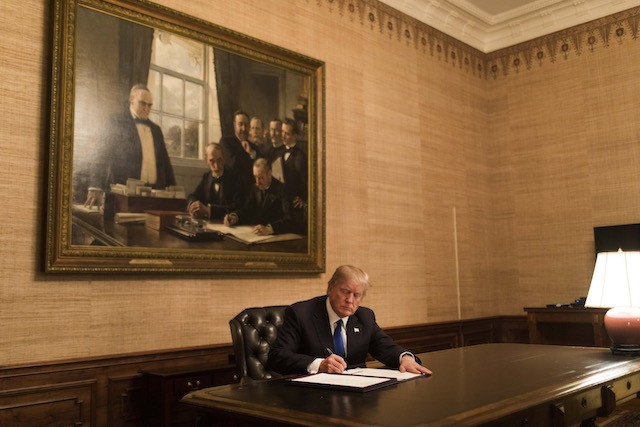Trump signs steel order
Donald Trump formally ordered new tariffs of 25% on steel imports and 10% on aluminum imports into the US from all countries except Canada and Mexico, as reported by the Financial Times. The US will create a procedure for other allies to seek exemptions. Steel stocks closed lower on Thursday, including trading in Luxembourg-based ArcelorMittal, which was down -2.7%.
North Korea and US leaders agree to meet
Donald Trump and Kim Jong-un, North Korea’s leader, will meet for a summit on North Korea’s nuclear missile programme “by May”, The Guardian reported. It would be the first meeting between Trump and Kim, and the first major negotiations between the countries since 2012. The White House said it would brief the UN on the talks next week.
Coming cryptocurrency crackdown in US
Online platforms that trade in cryptocurrencies--such as bitcoin, Ethereum and Ripple--should be subject to registration and government rules, according to the Securities and Exchange Commission, one of the main financial regulators in the US. Its chief believes both “initial coin offerings” and secondary trading fall under its purview, Reuters reported. The statements hint at a coming crackdown, which “is a positive step because it will shut out bad actors and further legitimize the industry as it matures,” the news agency quoted one Washington lawyer as saying.
Easing off quantitative easing
The European Central Bank moved to phase out its “quantitative easing” programme of buying bonds to stimulate the eurozone economy, said Bloomberg, CNBC and the Financial Times. Net asset purchases of €30bn per month will continue until September 2018, or longer if needed to keep the ECB’s inflation target on track.
Age of consent in France
France will codify its age of consent at 15 years old, according to the BBC and France 24. The measure followed two cases involving adult men and 11 year old girls.
Missing 6 minutes across Europe
A dispute between Kosovo and Serbia has slowed clocks down in 25 countries by six minutes since January, explained the BBC and Guardian. Countries in the Entsoe network--which include Luxembourg, Turkey and the UK--operate their electricity networks at a synchronised frequency, which in turn helps keep time for devices like clock radios, heating timers and oven clocks. But Serbia has not provided Kosovo with the energy it is obliged to, causing an imbalance throughout the entire system.
